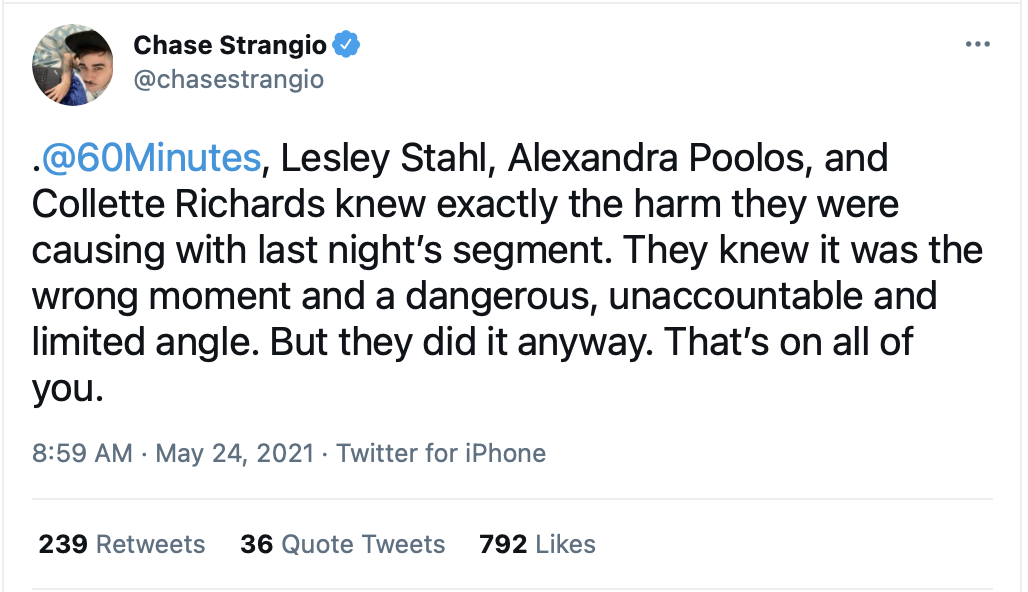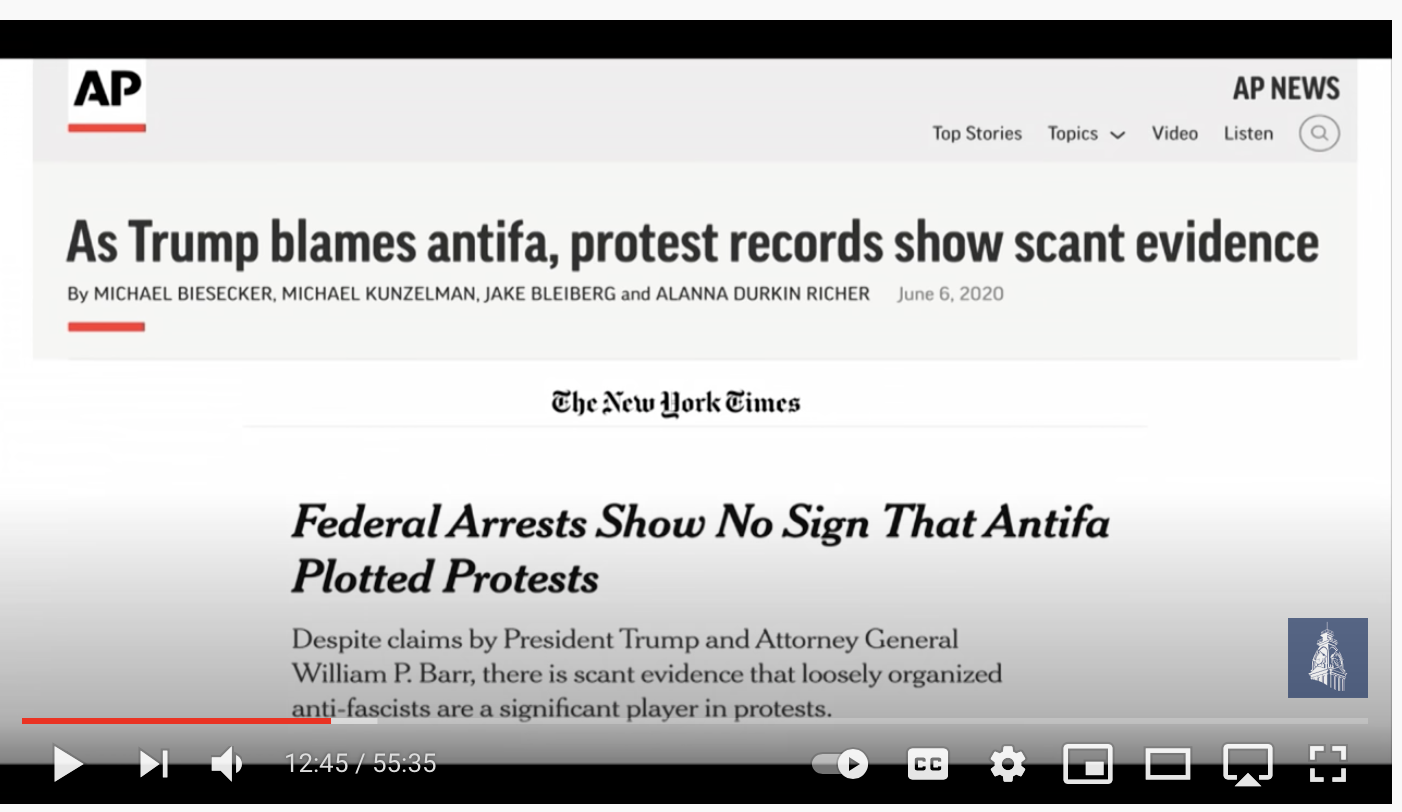I applaud 60 Minutes for broadcasting this balanced report on trangender medical issues.
[Added May 24, 2021]
The ACLU's famously pro-censorship attorney, Chase Strangio probably liked the first half of 60 Minutes' recent discussion on transgender health care, the part discussing the fact that many states, including Arkansas, are attempting to restrict surgery and hormone injections for minors who claim to be transgender. I agree that this legislation should be critically examined and should not interfere with legitimate well-researched healthcare. Lesley Stahl indicated that "the vast majority" of people who have transitioned are satisfied. But Strangio's Tweet-rant claims that it is "dangerous" and "unaccountable" that 60 Minutes considered concerns with transgender health care.

As part of this topic, Stahl interviewed thirty teenagers and young adults who detransitioned, all of them having regrets, many of them after surgery and hormones. These young adults regretted that they got caught up in the excitement, many of them frustrated that their counselors "blindly affirmed" the transgender diagnosis and did not push back or dig deeper into what was really going on in their lives. I assume that Strangio was also outraged that 60 Minutes dared to mention the existence of a growing sub-Reddit Detrans group with more than 19,000 members.
The show also featured nationally recognized psychologist (and transgender woman) Erica Anderson, in accordance with the positions taken by many major medical organizations, criticized the new wave of state laws, characterizing them as "ominous." Anderson admitted, however, that there are no existing accreditation standards for work in this field of transgender health care. Anderson expressed concern that many health professionals in this field are not well-trained and she called treatment offered by many healthcare professionals "deplorable."
Another expert, Laura Edwards-Leeper, a psychologist at one of the first transgender clinics (in Boston), stated that she is concerned about rampant unethical behavior by many practitioners. She noted that many therapists in the field share her concerns, but are "scared to speak up" for fear of pushback from the trans community.
For Strangio of the ACLU, however, this well-balanced investigative piece is not good enough. It contains too much information. Ira Glasser and John Stuart Mill are both spinning in their graves.


